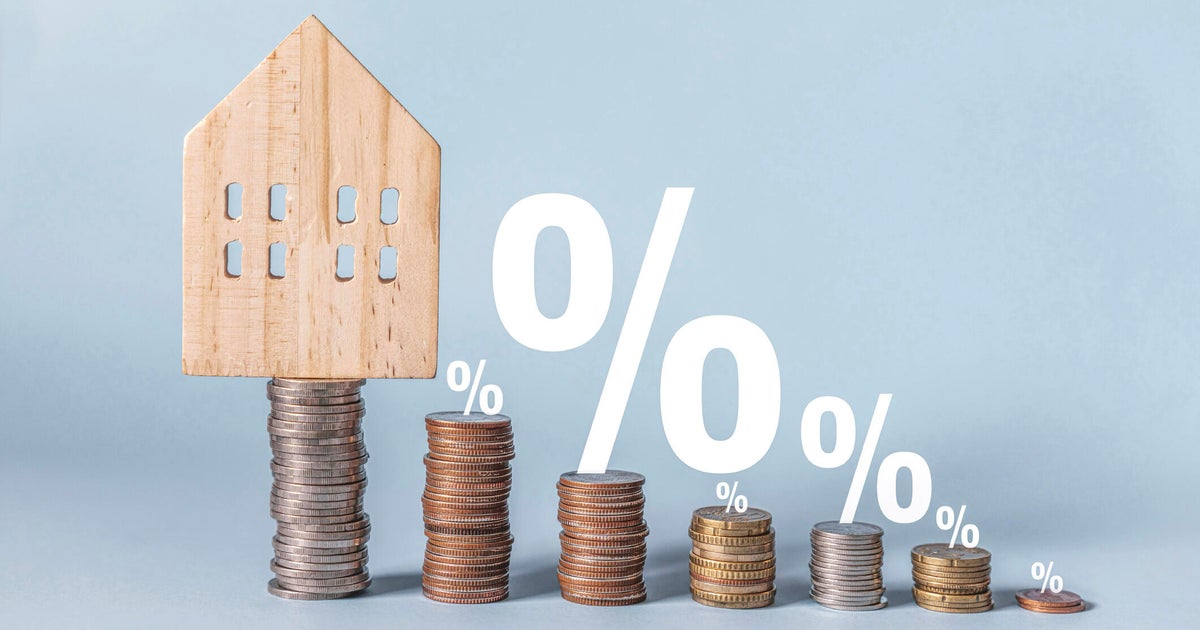When does a home equity loan make sense? What experts say
Many homeowners have enjoyed rising real estate prices over the past few years, which has helped buoy the amount of home equity homeowners have. Currently, the average mortgage holder has nearly $300,000 in home equity, about $193,000 of which is tappable home equity. That can give many homeowners beneficial borrowing capabilities in this era of high inflation.
That's not to say that borrowing against your home equity always makes sense, as you don't want to take on more debt just for the sake of it. But there are times when tapping into your home equity could be beneficial, such as when you can borrow against your home equity at a more affordable interest rate than some other financing sources.
And, the benefits you get from doing so can depend on how you access your home equity. One option is to take out a home equity line of credit (HELOC), which gives you a borrowing limit that you can draw from over time, similar to a credit card. Another option is to do a cash-out refinance, where you replace your mortgage with a larger loan, enabling you to use the excess as cash. Or, you can take out a home equity loan, which operates as a second mortgage.
All of these options have their pros and cons, which can vary depending on your situation. In general, though, there are some times when a home equity loan in particular makes the most sense.
Ready to borrow from your home equity? Compare your top home equity loan options here.
When does a home equity loan make sense? What experts say
Here's when experts say a home equity loan could make the most sense:
When you want a fixed-rate, lump-sum loan
The fixed-rate, lump-sum nature of home equity loans can provide an advantage over HELOCs, such as if you need to borrow a large amount and want to know exactly how much you'll be paying back. Cash-out refinances can also provide this benefit, but that might not make sense for homeowners who have low existing mortgage rates.
And, for those with low mortgage rates on their current home loans, a "home equity loan or HELOC will likely be a better option because it allows the borrower to keep the low rate on the first while still tapping equity in their home," says Peter Idziak, senior associate at Polunsky Beitel Green LLP.
"Between the two, a home equity loan is generally the better option for those borrowers who want to take a lump sum at closing or want a fixed monthly payment over the life of the loan. Home equity loans also typically come with longer terms than HELOCs, which can lead to a lower monthly payment," Idziak adds.
Learn more about the top home equity loan rates you could qualify for here.
When you want to consolidate debt
A home equity loan can help you save money on interest costs if you have other existing debt.
"Home equity loans are also a good source for consolidating other debt, such as credit cards and student loans, which will have a much higher interest rate than the equity loan," says Joseph Milizio, real estate attorney, managing partner at Vishnick McGovern Milizio LLP.
The lump sum nature of home equity loans can pay off here too, as you can get a good handle on what your new debt payments will be and how long it will take to pay off the balance. With a HELOC, there can still be a lot of variability. A cash-out refinance can also be more expensive than a home equity loan for many existing homeowners.
"If a homeowner has an existing loan at a low interest rate, but needs a lump-sum cash payment, it makes little sense to refinance the entire debt at a higher mortgage loan interest rate. The higher interest can be limited to just the home equity loan, which will generally have a shorter payment period," says Milizio.
When you want to finance large home improvement projects
Home equity loans can also be useful in situations where you need a significant source of cash but don't want to lose your existing mortgage.
"Many households may not want to get a whole new mortgage and start from the beginning with a refinance; it really depends on individual circumstances. For instance, if you need a large sum of money all at once for a renovation project, a home equity loan makes the most sense," says Cristy Ward, chief strategy officer at Mortgage Connect.
However, if you want to do home improvement projects here and there and aren't quite sure how much you want to borrow, there could be better options.
"If you want to receive money over a period of time and don't need it all at once, a home equity line of credit may be more fitting," says Ward.
The bottom line
Home equity loans can be useful for homeowners looking to borrow a lot of money at once, such as for a large home improvement project or to consolidate debt. Because these loans generally have fixed interest rates and require regular repayments, they can provide the discipline and predictability that some need to clear their debt. However, there can be situations where other financing options make more sense, so it's important to weigh the pros and cons for your own circumstances.




